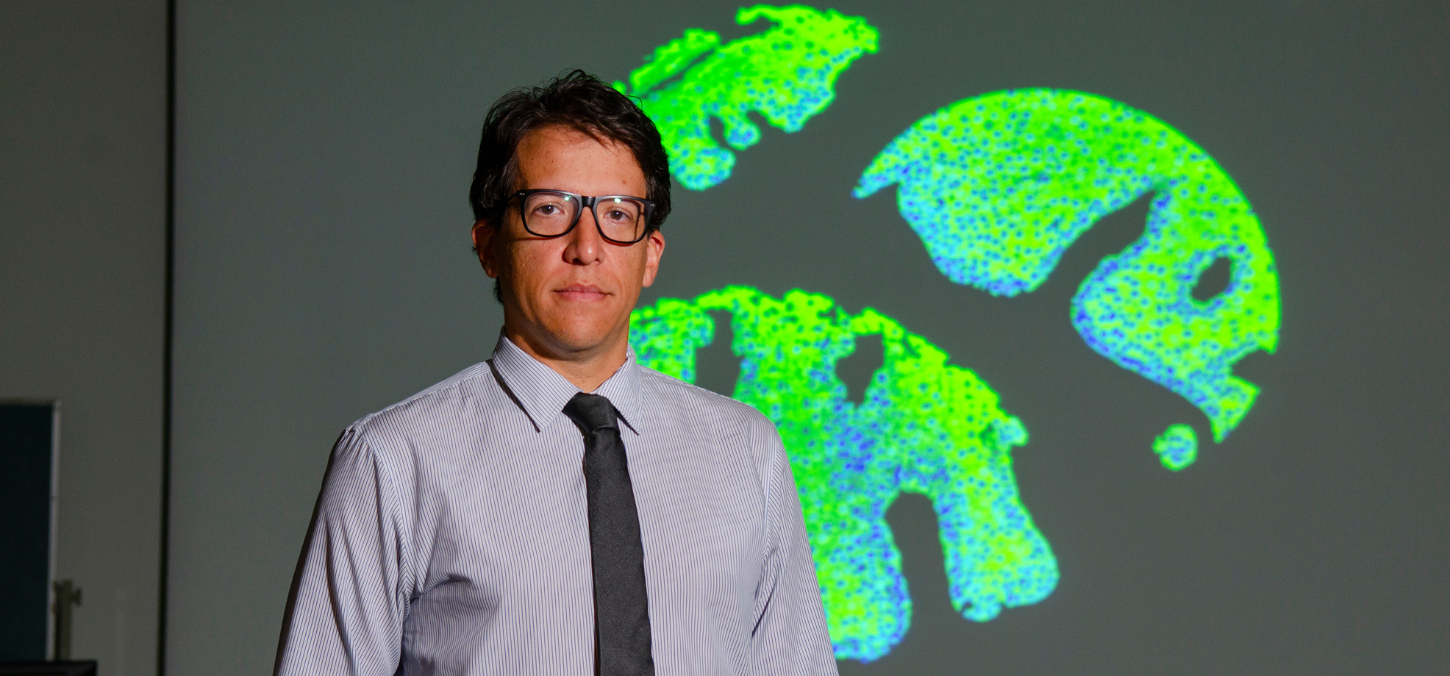
The genetics of oral lesions
Oral cancer: it’s awful. Six to 36 per cent of premalignant oral lesions progress to cancer, but we have limited strategies for predicting which ones will remain harmless, and which could kill the patient. That risk of death is real, with oral cancer killing more people in Canada than melanoma or cervical cancer — about 1,500 people a year.
“No matter what, even if you survive it, it’s bad,” says associate professor Marco Magalhaes 0T9 PhD, 1T5 MSc OP/OM. Advanced oral cancers have a 50 per cent survival rate, and those who get cured can have significant disability after radiation and surgery.
“If we are able to identify oral cancers early and find ways to treat them early, that will be ideal.”
Magalhaes runs one of the few labs in Canada devoted to understanding oral cancer. With funding from the likes of the Canadian Cancer Society, he and his team are analyzing which lesions risk turning malignant to identify cancer early and find new treatment options.
In a novel approach to studying oral cancer, he is combining clinical research with advanced molecular and genetic analysis. Magalhaes and Oral Pathology and Oral Medicine MSc student Vincent Lavoie are putting samples from the Faculty’s Toronto Oral Pathology Service through something called spatial transcriptomics.
“Before, we used to take a piece of tissue and we got all these transcripts, all jumbled up. Now, we’re able to separate them into compartments and see how they’re behaving differently,”
This process looks at protein coding RNA expression within different cell types. “Before, we used to take a piece of tissue and we got all these transcripts, all jumbled up. Now, we’re able to separate them into compartments and see how they’re behaving differently,” says Lavoie. “We’re trying to predict if tissue has a higher risk of progression. From our preliminary results, it seems like we can.”
Oral cancers are complex, but this approach is confirming that inflammation and immune response play an important role in cancer progression. Jump-off projects in Magalhaes’ lab include the development of a genetic test for some of these expressions and the creation of an animal model that knocks out these genes, to find a pathway for potential treatments.
Outside of the lab, Magalhaes has become something of an advocate for awareness and research funding for deadly and debilitating oral cancers, sharing his insights at scientific meetings and charity events. “There’s not much going on in the way of oral cancer campaigns, but that’s what I’m trying to do, to get the awareness out there.”
To learn more about the latest research breakthroughs at the Faculty of Dentistry, read the latest issue of the U of T Dentistry Magazine 2023 Summer / Fall.
Written by: Diane Peters
Photo credit: Jeff Comber, IITS